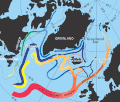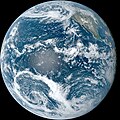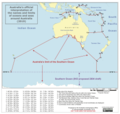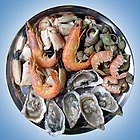Portal:Oceans
– Hover over image and scroll to middle for controls to see more selected panorama images –
Introduction
| Earth's ocean |
|---|
|
Main five oceans division: Further subdivision: Marginal seas |

The ocean is the body of salt water that covers approx. 70.8% of Earth. In English, the term ocean also refers to any of the large bodies of water into which the world ocean is conventionally divided. The following names describe five different areas of the ocean: Pacific, Atlantic, Indian, Antarctic/Southern, and Arctic. The ocean contains 97% of Earth's water and is the primary component of Earth's hydrosphere, thus the ocean is essential to life on Earth. The ocean influences climate and weather patterns, the carbon cycle, and the water cycle by acting as a huge heat reservoir. (Full article...)

A sea is a large body of salty water. There are particular seas and the sea. The sea commonly refers to the ocean, the wider body of seawater. Particular seas are either marginal seas, second-order sections of the oceanic sea (e.g. the Mediterranean Sea), or certain large, nearly landlocked bodies of water. (Full article...)
Oceanography (from Ancient Greek ὠκεανός (ōkeanós) 'ocean', and γραφή (graphḗ) 'writing'), also known as oceanology, sea science, ocean science, and marine science, is the scientific study of the oceans. It is an Earth science, which covers a wide range of topics, including ecosystem dynamics; ocean currents, waves, and geophysical fluid dynamics; plate tectonics and seabed geology; and fluxes of various chemical substances and physical properties within the ocean and across its boundaries. These diverse topics reflect multiple disciplines that oceanographers utilize to glean further knowledge of the world ocean, including astronomy, biology, chemistry, geography, geology, hydrology, meteorology and physics. Paleoceanography studies the history of the oceans in the geologic past. An oceanographer is a person who studies many matters concerned with oceans, including marine geology, physics, chemistry, and biology. (Full article...)
Selected article -

The coast, also known as the coastline, shoreline or seashore, is defined as the area where land meets the ocean, or as a line that forms the boundary between the land and the coastline. Shores are influenced by the topography of the surrounding landscape, as well as by water induced erosion, such as waves. The geological composition of rock and soil dictates the type of shore which is created. The Earth has around 620,000 kilometres (390,000 mi) of coastline. Coasts are important zones in natural ecosystems, often home to a wide range of biodiversity. On land, they harbor important ecosystems such as freshwater or estuarine wetlands, which are important for bird populations and other terrestrial animals. In wave-protected areas they harbor saltmarshes, mangroves or seagrasses, all of which can provide nursery habitat for finfish, shellfish, and other aquatic species. Rocky shores are usually found along exposed coasts and provide habitat for a wide range of sessile animals (e.g. mussels, starfish, barnacles) and various kinds of seaweeds. In physical oceanography, a shore is the wider fringe that is geologically modified by the action of the body of water past and present, while the beach is at the edge of the shore, representing the intertidal zone where there is one. Along tropical coasts with clear, nutrient-poor water, coral reefs can often be found between depths of 1–50 meters (3.3–164.0 feet).
According to an atlas prepared by the United Nations, 44% of all humans live within 150 km (93 mi) of the sea. Due to its importance in society and its high population concentrations, the coast is important for major parts of the global food and economic system, and they provide many ecosystem services to humankind. For example, important human activities happen in port cities. Coastal fisheries (commercial, recreational, and subsistence) and aquaculture are major economic activities and create jobs, livelihoods, and protein for the majority of coastal human populations. Other coastal spaces like beaches and seaside resorts generate large revenues through tourism. Marine coastal ecosystems can also provide protection against sea level rise and tsunamis. In many countries, mangroves are the primary source of wood for fuel (e.g. charcoal) and building material. Coastal ecosystems like mangroves and seagrasses have a much higher capacity for carbon sequestration than many terrestrial ecosystems, and as such can play a critical role in the near-future to help mitigate climate change effects by uptake of atmospheric anthropogenic carbon dioxide. (Full article...)Interesting facts -
- The west coast seabream and the sand steenbras (pictured) start their adult lives as males and later change sex.
- Sea fans such as Leptogorgia sarmentosa and Eunicella singularis are sometimes overgrown by false coral.
- The Islamic prophet Muhammad, while in Mecca, was a merchant involved in trade between the Indian Ocean and the Mediterranean Sea.
Selected list articles and Marine habitat topics
| Marine habitats |
|---|
| Coastal habitats |
| Ocean surface |
| Open ocean |
| Sea floor |
- List of oceans
- List of ancient oceans
- List of seas
- List of circumnavigations
- List of cruise lines
- List of largest lakes and seas in the Solar System
- List of marine biologists
- List of marine ecoregions
- List of maritime explorers
- List of naval battles
- List of ocean liners
- List of oceanographic institutions and programs
- List of oldest surviving ships
- List of rogue waves
- List of seafood dishes
- List of submarine topographical features
Tasks
 |
Here are some tasks awaiting attention:
|
General images -
Related portals
In the news
- 17 May 2024 – Red Sea crisis
- Houthi forces shoot down a United States Air Force MQ-9 Reaper drone with a surface-to-air missile over Marib Governorate, Yemen. Wreckage of the downed drone appears on social media. (ABC News)
- 9 May 2024 – Israeli–Palestinian conflict
- Red Sea crisis
- 29 April 2024 – Israel–Hamas war
- Red Sea crisis
- Houthi forces strike four ships in the Red Sea and damage the Malta-flagged, Greece-owned bulk carrier Cyclades. (The Jerusalem Post) (AP)
- 12 April 2024 – Iran–Israel proxy conflict
- Germany tells its citizens to leave Iran immediately, saying that "air, land and sea transport routes" will likely be affected by military action in the region. (Reuters)
WikiProjects
Topics
Categories
Associated Wikimedia
The following Wikimedia Foundation sister projects provide more on this subject:
-
Commons
Free media repository -
Wikibooks
Free textbooks and manuals -
Wikidata
Free knowledge base -
Wikinews
Free-content news -
Wikiquote
Collection of quotations -
Wikisource
Free-content library -
Wikiversity
Free learning tools -
Wiktionary
Dictionary and thesaurus
Admiralty law
| Admiralty law |
|---|
| History |
| Features |
| Contract of carriage/Charterparty |
| Parties |
| Judiciaries |
| International conventions |
| International organizations |
Need assistance?

Do you have a question about oceans, seas or oceanography that you can't find the answer to? Consider asking it at the Wikipedia reference desk.
External media

- World Ocean Database and World Ocean Atlas Series – from the U.S. National Centers for Environmental Information, National Oceanic and Atmospheric Administration. Includes the World Ocean Atlas.
- European Atlas of the Seas – the European Atlas of the Seas, from the European Commission
- NOAA Research – NOAA research news, Oceanic and Atmospheric Research (OAR)
- Ocean Research – from The World Ocean Observatory
- Ocean Biodiversity Information System – "a global open-access data and information clearing-house on marine biodiversity for science, conservation and sustainable development"









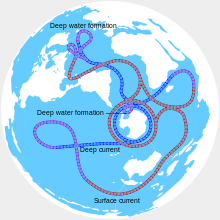






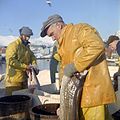













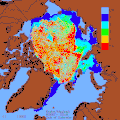
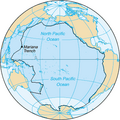
































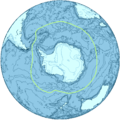





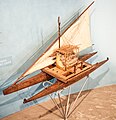




![Image 67"Terres Australes" [sic] label without any charted landmass (from Southern Ocean)](http://upload.wikimedia.org/wikipedia/commons/thumb/8/8e/Geography_world_map.jpeg/120px-Geography_world_map.jpeg)

